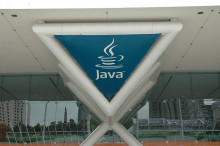Hacker installs Ice Cream Sandwich on Kindle Fire
A hacker named Steven has posted a video of Ice Cream Sandwich running on the Kindle Fire, along with more information in the XDA Developers forums. The hack is incomplete, lacking support for audio, Wi-Fi, the accelerometer and the light sensor. Also, transitions look a bit choppy, but it's a start.
The hacker plans to start an open source project for Ice Cream Sandwich on the Kindle Fire, and will post his code to it. This was only a matter of time, considering the Android 4.0 code is open source.












































































